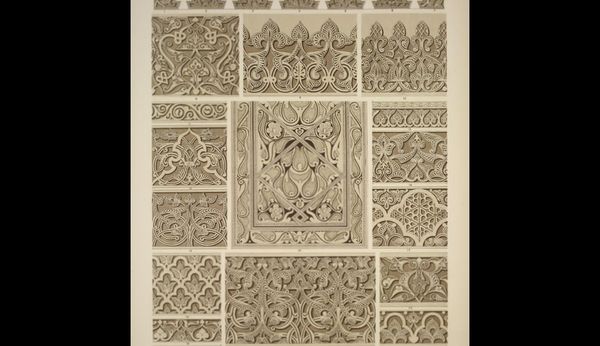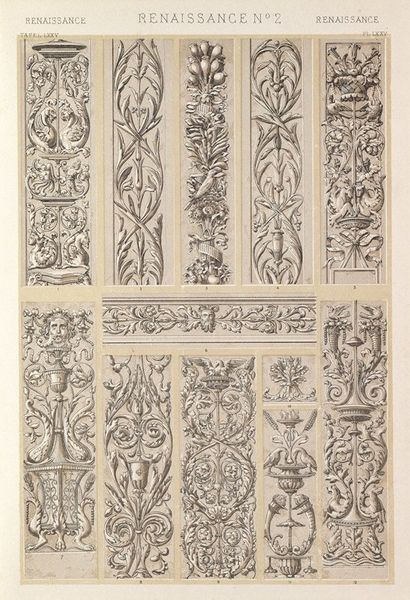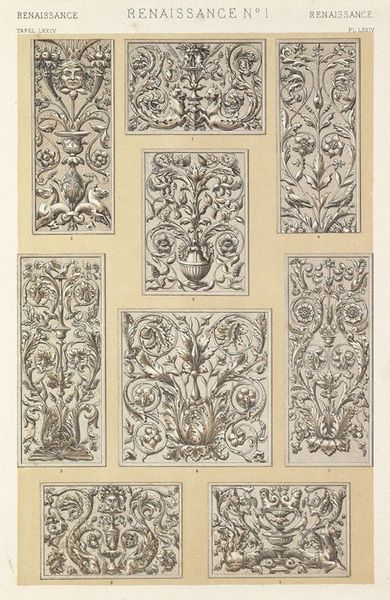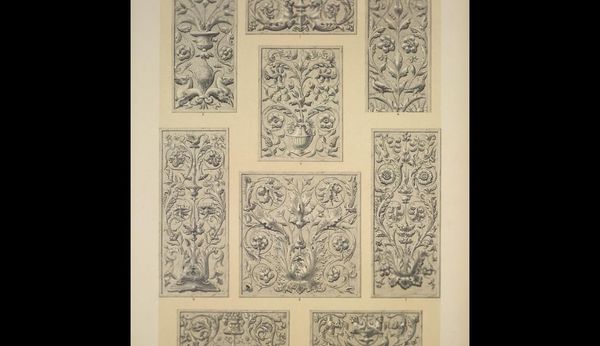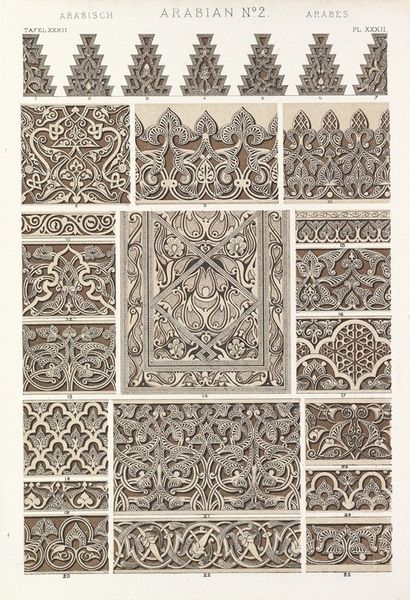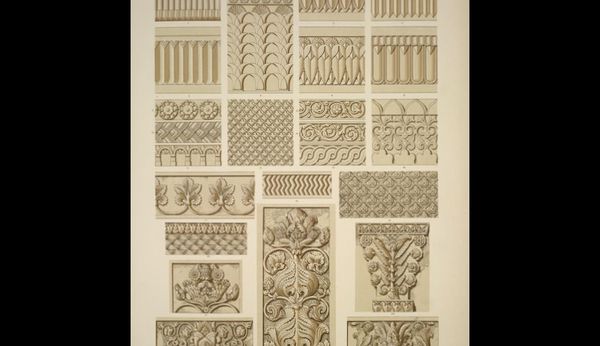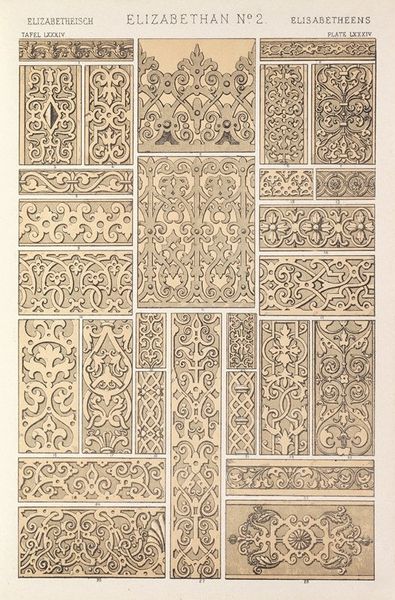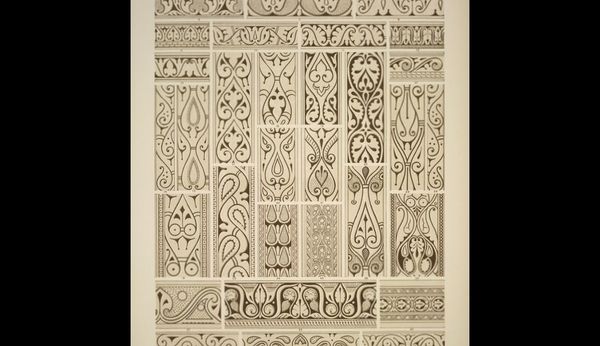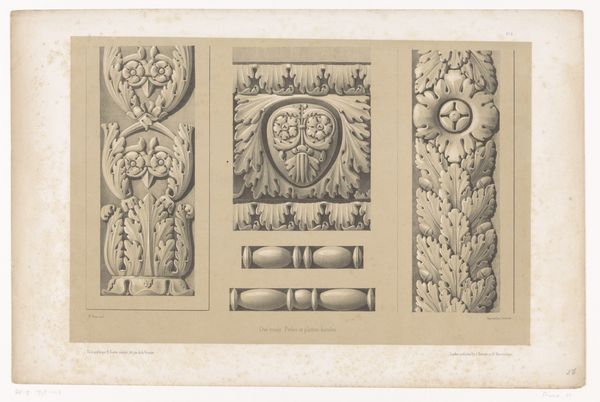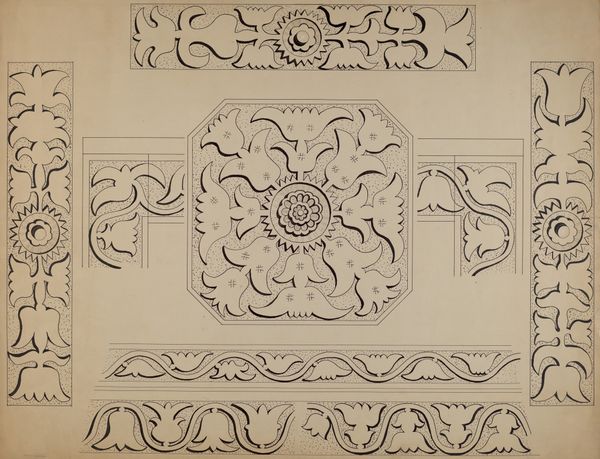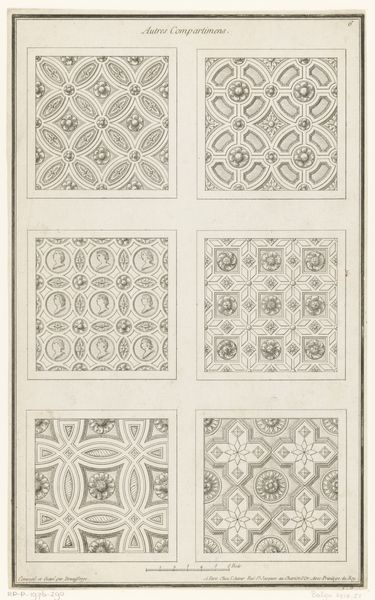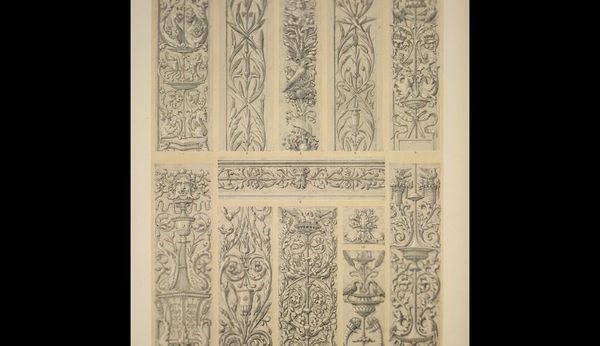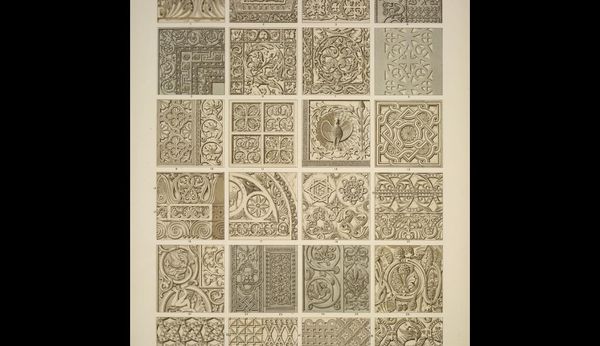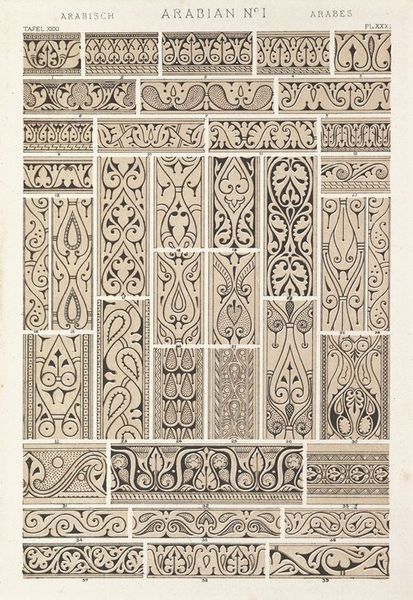
drawing, ornament
#
drawing
#
natural stone pattern
#
ornament
#
man-made pattern
#
pattern
#
asian-art
#
geometric pattern
#
subtle pattern
#
repetitive shape and pattern
#
geometric
#
repetition of pattern
#
vertical pattern
#
intricate pattern
#
pattern repetition
#
decorative-art
#
layered pattern
Copyright: Public domain
Editor: This drawing, titled "Hindoo Ornament no. 1. Ornaments from a statue at the Asiatic's Society House" by Owen Jones, showcases different ornamental patterns. The variations on a floral theme and the geometric arrangements have an almost hypnotic quality. What elements stand out to you? Curator: The composition is highly structured, dividing the surface into discrete, framed units. Note how each section presents a unique iteration of geometric and organic forms, yet there is a pervasive visual consistency achieved through the restrained palette and the emphasis on line and form. Observe the intricate layering within each design, the subtle interplay of positive and negative space, how the eye is invited to trace and retrace these elegant convolutions. Editor: The repetition is definitely compelling. Is it intended to create a certain… rhythm? Curator: Precisely. Consider the repetition as a form of visual syntax. Each motif functions as a distinct element that gains significance through its serial arrangement. Do you perceive a hierarchy amongst these elements? Are certain forms dominant or subservient? Editor: I notice the central ornament, the one with the curved stem, it is much larger and seems to draw more attention. Curator: Good observation. The deviation disrupts the overall rhythm of the drawing and offers visual relief and focus. Consider how the interplay of symmetry and asymmetry functions to guide the viewer's eye across the entire composition. It is the carefully structured asymmetry, you see, which invigorates the overall design. Editor: I see that now. So even in something that seems so focused on pattern, there's still a distinct kind of visual hierarchy at play. Curator: Exactly. Formal analysis reveals that seemingly decorative arrangements possess underlying structural complexity.
Comments
No comments
Be the first to comment and join the conversation on the ultimate creative platform.
